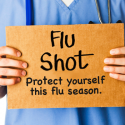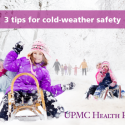How men can reduce the risk of prostate cancer
Each year our bodies change, and our risk of developing diseases increases. Men are more likely to be diagnosed with prostate cancer the older they get. According to the Prostate Cancer Foundation, 1 in 10,000 men under the age of 40 will be diagnosed. For ages 40 to 59, the rate increases to 1 in 38. Then for ages 60 to 69 the rate increases even more to 1 in 14 men. The average age of men being diagnosed with prostate cancer in the United States is 69 years old. (1)
Ways to reduce risk:
- Eat a healthy balanced diet.
- Maintain a healthy weight.
- Be physically active.
- Have good communication with your doctor.
- Get screened for prostate cancer. Screenings include a digital rectal exam and a prostate-specific antigen test (PSA), which can help identify cancer in its early stages.
- Avoid smoking.
- Drink alcohol in moderation.
- Reduce stress by relaxing and enjoying life.
Risk factors for prostate cancer:
- Age — chance of having prostate cancer goes up after the age of 50.
- Race — research shows that African American men have double the risk of dying of prostate cancer.
- Family history — the risk of prostate cancer is much higher for men with several relatives who have been affected by it.
- Geography — more common in North America, Australia, the Caribbean, and northwestern Europe.
- Diet — men who eat a lot of red meat or high-fat dairy products with little fruits and vegetables have a slightly higher chance of getting prostate cancer.
Signs and symptoms:
- Problems urinating with slow or weak urinary stream
- The need to urinate more often, especially at night
- Blood in the urine
- Trouble getting an erection
- Weakness or numbness in the legs or feet
- Loss of bladder or bowel control due to cancerous tumors pressing on the spinal cord
- Back pain
- Chest pain around the ribs
- Pain in the hips and other bones
Talk to your doctor today about what you can do to help avoid prostate cancer, when and if you should be tested, and if you are experiencing any of the symptoms listed above.
References:
- Prostate Cancer Foundation: http://www.pcf.org/site/c.leJRIROrEpH/b.5699537/k.BEF4/Home.htm
UPMC_16_1363




